Striving for ‘A Big Agenda’ Instead of ‘A Small Life’
In 2014, just after turning 50, I pursued a dream – for the second time – of running for political office, this time for Maryland state delegate. In 2016, I published a nonfiction book recounting the rollicking, 10-candidate free-for-all campaign that some observers called a “circus,” and taking a look at the dog-eat-dog, mucky, incestuous, narcissistic business of politics from the trenches. Don’t Knock, He’s Dead: a Longshot Candidate Gets Schooled in the Unseemly Underbelly of American Campaign Politics, would “amuse 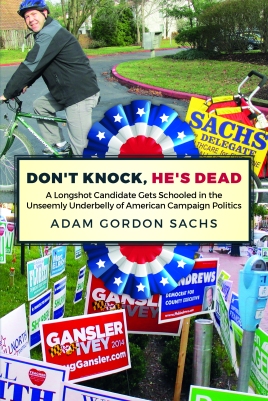 some and infuriate others,” wrote a local political blogger and campaign strategy consultant who reviewed the book.
some and infuriate others,” wrote a local political blogger and campaign strategy consultant who reviewed the book.
Here is the story of how I came to enter this exhilarating yet disillusioning political world, and an excerpt from Don’t Knock, He’s Dead describing my final push over the precipice of reservation and into the tangle of the state race.
A Midlife Wham-Bam Combo: Job Loss and Divorce
I was 42 years old, and midlife was slamming me hard, hurricane-force winds compelling me to grip a light pole tight lest my legs blow out from under me and hurtle me adrift. For the second time within two years, I had been laid off from a public relations job with a nonprofit organization because of budget cuts amid a post-9/11 World Trade Center terrorist attack economic slump.
Following the second layoff, I entered the Baltimore City Teacher Residency program, seeking a new challenge to do something more meaningful at midlife, an opportunity to make lemonade with the lemons I was accumulating. I taught elementary school in low-income communities. I struggled to survive the torrent of urban education: The needs were great; the resources and support meager; the kids lagging woefully behind and a handful to manage. I met with the principal, who emphasized if I didn’t commit to the task with every ounce of energy, I would drown. I contemplated for a night, and accepted reality: Mentally and emotionally, I was half in, half out. The next day, I submitted my resignation, jumping ship from my fledgling teaching career with no life preserver.
Only four months earlier, I had separated from my wife, headed for divorce, with two young kids. I was both free and free-falling.
When I quit my teaching job, it was just short of a year before the next election, and the dormant thought of running for political office surfaced. It was one of those bucket-list things, something I didn’t want to go six-feet-under without having attempted.
As a reporter for the Baltimore Sun, I covered a largely rural county’s political delegation to Maryland’s state legislature. It was my first glimpse of citizen legislators up close. The part-time lawmakers were provincial men, long-established and well-respected in their tight-knit, small-town communities—a tire shop owner, a gentleman dairy farmer and banker, a pharmacist, a Realtor, a stock broker. Covering them alerted me it was possible for regular folk to ascend to political office and become bedrock representatives. I wondered if I could do what they did. Anyway, it was a moot point as a journalist; the two endeavors couldn’t be intermixed.
It wasn’t until I transitioned into public relations eight years later that the light bulb came on. As community affairs director for a social services agency, I organized political forums for state candidates. Observing the forums, I thought that I could perform as well as many of the inexperienced, run-of-the-mill candidates. The seeds were planted; they didn’t germinate for another few years, until I was left blowing in the wind, unemployed and on the path to divorce.
Maybe I would have time to campaign while I looked for a job, I thought after bailing out of the Baltimore City classroom without a parachute. I didn’t know if it was a life raft to cling to or a bold dream to fulfill, or both. Meanwhile, I obtained a communications position at a health insurance giant—far from a dream job, but a consistent paycheck. Instead of waning, however, the idea of running for council fortified, even with that new lifeline.
I knew the Democratic county council member from my suburban Baltimore district had fallen out of favor. I gathered my courage and filed as a candidate to challenge him. Soon after, the incumbent announced he was resigning before completing his term – a sign from God? I thought. Maybe the idea wasn’t so quixotic after all. A county Democratic Committee would interview applicants and make an appointment to complete the term.
It was almost a great break—except that the one other officially registered candidate had run and lost against the departing councilman in the previous election and since had become a connected political insider. The insider with a track record was selected.
One and Done?
In that 2006 Democratic county council primary, I ran a bare-bones campaign against the newly appointed councilman with party backing. I lost, garnering 34 percent of the vote—respectable for a late-arriving political no-name who couldn’t check the prerequisite boxes as stepping stones. I had not “paid my dues” or built my political network.
I received compliments during the campaign from insiders about my potential and encouragement to stay involved and build upon my effort. I didn’t. Life intervened: an aggravating divorce, a new girlfriend, young kids, aging parents, a stressful job. I figured the newly elected council member would become entrenched, and he did, ultimately serving the maximum three terms. The desire didn’t burn intensely enough, and I faded from the political scene.
I was satisfied to have given electoral politics one shot in midlife, so I wouldn’t spend the rest of my life wondering whether I had the courage to run and what it would be like to put myself into the court of public opinion, to expose myself for all to judge and render a verdict. I had closed that chapter and had no plans to return. I’d sworn it off, closed the door—but left it unlocked. I was occasionally reminded by friends about my run and was asked if I was going to run again, as if I really was a dyed-in-the-wool politician. My answer was no…followed by the caveat that allowed for a sliver of possibility: But I never say never.
Seven years later, the perfect storm conspired to compel me to open the door again, when all three Maryland state delegates representing my district announced they were retiring from office, an unprecedented exodus leaving a gaping hole in a business where participants typically solidify their vise grip on power like the Jaws of Life tearing the roof off a car.
A Dream II Takes Shape (Excerpt from Don’t Knock, He’s Dead: a Longshot Candidate Gets Schooled in the Unseemly Underbelly of American Campaign Politics)
The momentum toward registering as an official candidate was growing in my own mind, yet I still hadn’t talked to anybody about my intentions…I knew the time had come for a Come-to-Jesus moment with my wife Amy.
“I’m thinking of running for state delegate,” I blurted over dinner, and braced for a catapult of mashed potatoes.
“What? Are you serious? Where did that come from? When did you decide that?”
“I’m just thinking about it, checking it out. I haven’t decided.”
“When were you going to tell me?”
“Tonight. I just did.”
“I’ve supported you in a lot of things before, when you quit your teaching job and when you ran for council and when you went back to school. I don’t know if I can support this.”
My proposition had landed like a Biggest Loser contestant’s balance beam dismount.
“How will you have the time?” Amy asked. “You complain about not having enough time to do things you want to do now.”
“I’ll just use whatever time I have. Maybe it won’t be enough time, just some time.”
She had a good point, but I didn’t care about such logic or practicality. The idea had taken root, and it had grown hardy, and I couldn’t prevent its development. Like a cocaine addict, I knew I was too far gone to stop.
My council run in 2006 was an easier sell. Since our relationship was new, I had decided I was going to run for county council no matter Amy’s opinion, and Amy would have to adapt—or leave if she really didn’t like it. It was an early test of our relationship, whether we could support each other’s goals. Seven years later, it was harder to take such an uncompromising position since we were married. I didn’t feel I could be as cavalier—and maybe self-centered—anymore. There’s no ‘I’ in ‘Team’ mister, Amy would rib me cornily when I was all about me, which was often.
Still, I countered Amy’s reflexive dismay at the idea by expressing concern about being controlled and giving up dreams for my life. Amy and I were fundamentally different. She valued safety, security and predictability. I felt restless and stifled without risk, ambition, challenging goals and freedom.
I Want The Real Life
At 50 years old, I wanted the freedom to live life my way, like Sinatra crooned, the freedom to make my own choices and to live with the consequences of success or failure. A midlife crisis? No. I didn’t give a crap about a red Porsche or Botox injections. But I did feel the clock ticking on the time I had to do meaningful things with my life. What was I going to wait around for? A heart attack? Dementia? Retirement? I don’t even play golf. I had the nagging sense, as John Cougar Mellencamp sang in The Real Life, that opportunities to grab the “gold ring”—hell, even bronze—would be continually dwindling:
My whole life
I’ve done what I’m supposed to do
Now I’d like to maybe do something for myself…
I guess it boils down to what we did with our lives
And how we deal with our own destinies
But something happens
When you reach a certain age
Particularly to those ones that are young at heart
It’s a lonely proposition when you realize
That’s there’s less days in front of the horse
Than riding in the back of this cart
YOLO
As I pondered launching a campaign, my sense of urgency about life heightened. A month after my 50th birthday at my daughter Rebecca’s high school graduation, the student commencement speakers referenced the new buzzword “YOLO” —You Only Live Once. They were right, of course, but what can a teenager realistically know about YOLO? It’s not until we’ve had dreams dashed, experienced bad luck and bad timing, suffered life’s tragedies, disappointments, cruelties and failures, come to terms with our own limitations, and battled against becoming stultified or buried in mediocrity and tedium that some of us truly embrace the YOLO creed. Much more than failure, I feared regret. I subscribed wholeheartedly to the saying that you will not regret the things you did; you will regret the things you didn’t do…
Courage
Some people told me about the courage it takes to run for public office. It might take a certain kind of courage to expose oneself to public scrutiny and judgement, step into the spotlight and put reputation and ego on the line. But I never thought of running for public office as something that requires real courage. To me, real courage defines people who put their lives on the line, military members who defend our country and liberate other people, or police officers, firefighters and other rescuers. Or teachers who face the toughest challenges in the roughest school districts. Or people who take a stand despite risks and public condemnation, whistleblowers and civil rights activists such as Martin Luther King, Jr., Nelson Mandela and Harvey Milk. Or people who are unflappable and unstoppable in the face of abuse, tragedy, disease or disability.
A Hat over the Wall
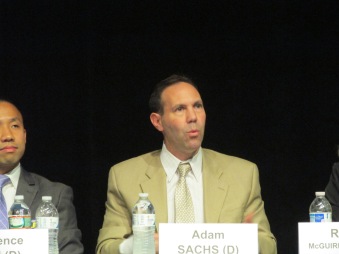 For me, entering a political race was more like throwing a hat over the wall. “Throwing a hat over the wall” was the metaphor used by President John Kennedy, referring to America’s determination to explore space and land a man on the moon. Kennedy appropriated the expression from Irish author Frank O’Connor, who wrote a parable about two adventurous boys who were halted in their journey by an imposing stone wall—until one threw his hat over the top, inspiring them both to scale the barrier to retrieve it. For me, it was crossing the line from consideration to commitment—throwing my hat over the wall…
For me, entering a political race was more like throwing a hat over the wall. “Throwing a hat over the wall” was the metaphor used by President John Kennedy, referring to America’s determination to explore space and land a man on the moon. Kennedy appropriated the expression from Irish author Frank O’Connor, who wrote a parable about two adventurous boys who were halted in their journey by an imposing stone wall—until one threw his hat over the top, inspiring them both to scale the barrier to retrieve it. For me, it was crossing the line from consideration to commitment—throwing my hat over the wall…
I drove to a nondescript, red-brick State Board of Elections office in Annapolis, threw my hat through the third-floor window and, for a $50 fee, filed my official registration papers as a candidate…
A Big Agenda
I had told my 17-year-old daughter Rebecca, who had just started college, about my plans the day before registering. She was supportive. The same day I talked to my 15-year-old son and budding computer scientist Daniel about being my “Chief Technology Officer” —a cool title that wasn’t to be found on the state registration forms. Daniel already knew about my potential candidacy; he had helped me shoot a video promoting a single-payer health care system.
I knew I couldn’t rely on either of my teen-agers to be big-time volunteers, with one in college and each with big academic loads and teen social lives. More importantly, I hoped I could serve as a model for striving for something meaningful, accepting a challenge, and being bold in life—maybe even a little courageous. They had seen me run for county council as 10- and 8-year-olds and had enthusiastically passed out literature to voters on primary election day. Now they had more maturity and wisdom to understand what being a political candidate meant and what it entailed. Still, they were baffled by why I would want to do such a thing, viewing it as another one of dad’s quirky “adventures,” like when I pulled them on a sled through two feet of snow and over snow banks a mile-and-a-half to Blockbuster, or when I suggested going to a remote, mountainous West Texas national park for Christmas. Regardless their involvement and the outcome, I wanted them to know and remember that I had a dream and wasn’t afraid to pursue it, that I strived for a Big Agenda instead of settling for a Small Life even though success was a longshot.

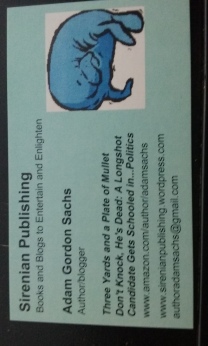 need in the future, as I plan to launch an independent
need in the future, as I plan to launch an independent 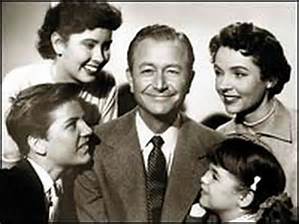 coyness about poorly concealed political intentions – look no further than the Orlovski family from Dundalk, a blue-collar community neighboring Baltimore known for its brick row houses and supplying labor to the once-thriving, now defunct Bethlehem Steel plant and shipbuilding yard. Dundalk’s population decreased 27 percent over a 30-year period, tracking the decline of its lifeblood industries.
coyness about poorly concealed political intentions – look no further than the Orlovski family from Dundalk, a blue-collar community neighboring Baltimore known for its brick row houses and supplying labor to the once-thriving, now defunct Bethlehem Steel plant and shipbuilding yard. Dundalk’s population decreased 27 percent over a 30-year period, tracking the decline of its lifeblood industries.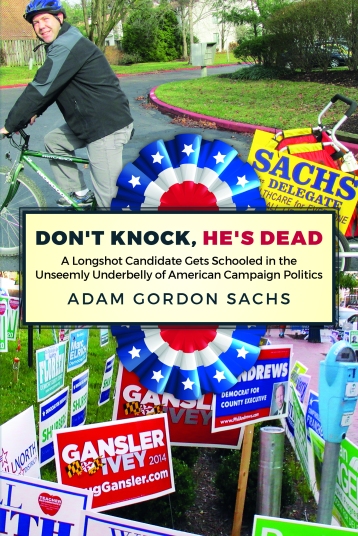 he time is right to run, someday, Don’t Knock, He’s Dead will either inspire you or disavow you of that foolish notion forever.
he time is right to run, someday, Don’t Knock, He’s Dead will either inspire you or disavow you of that foolish notion forever.